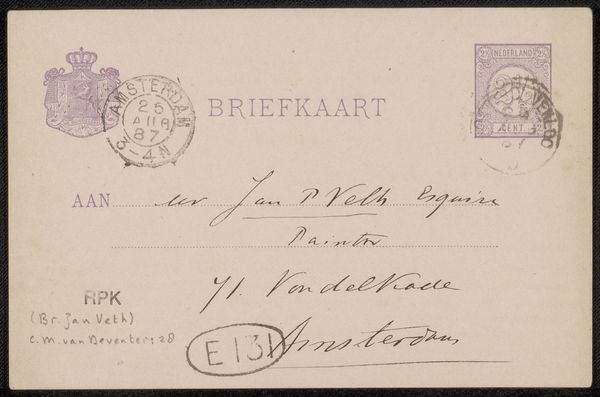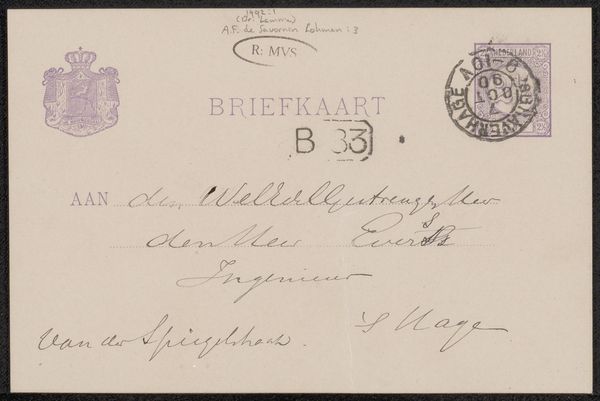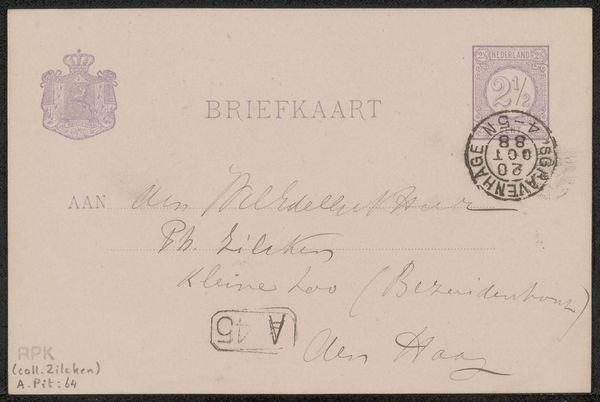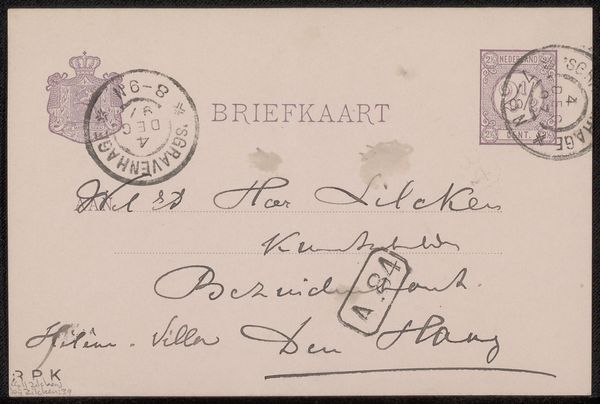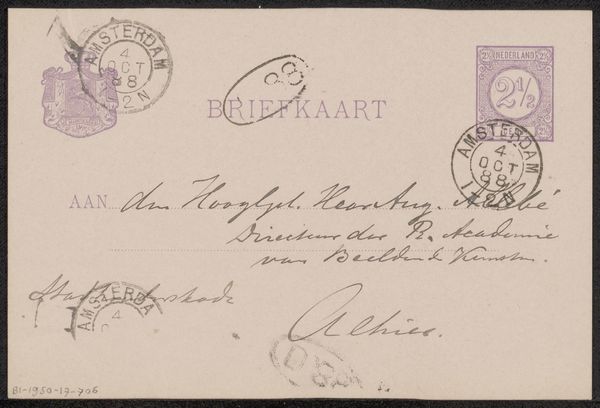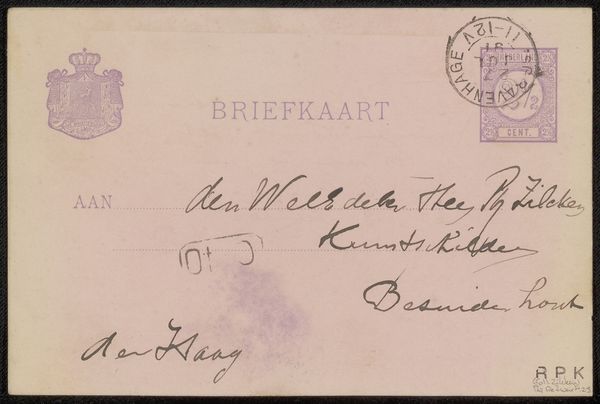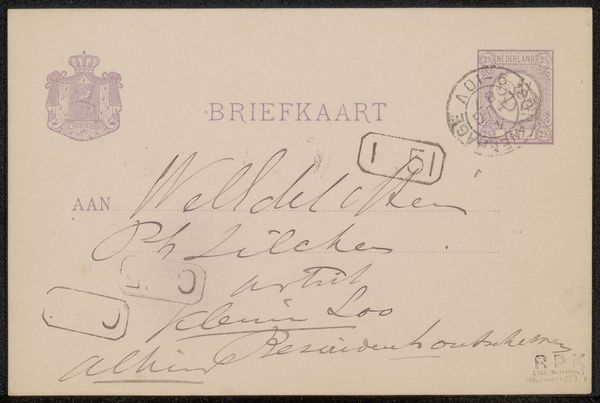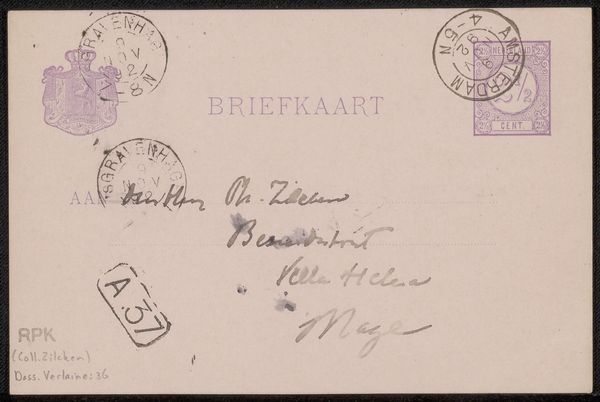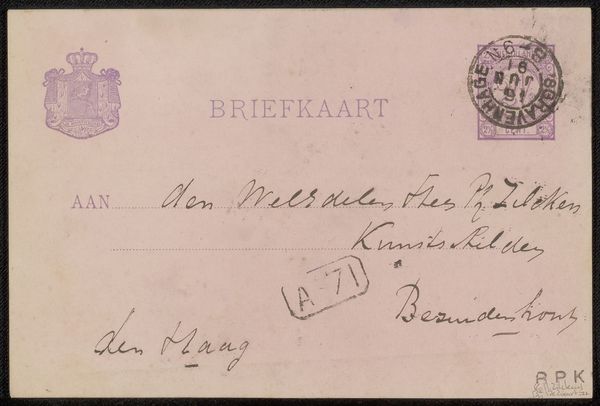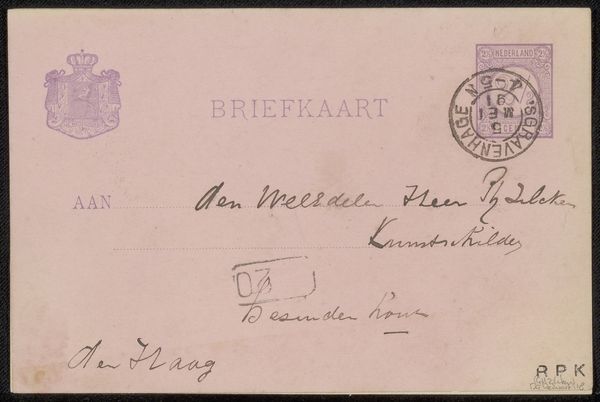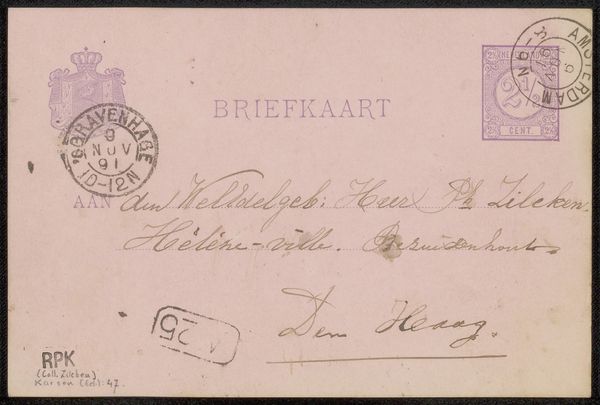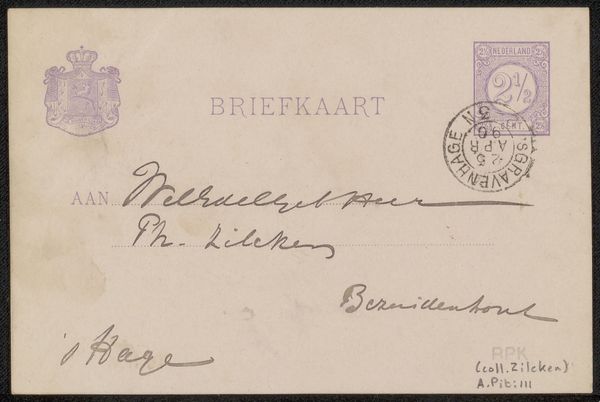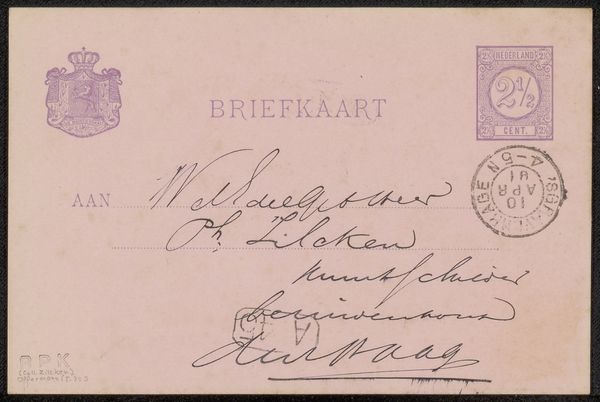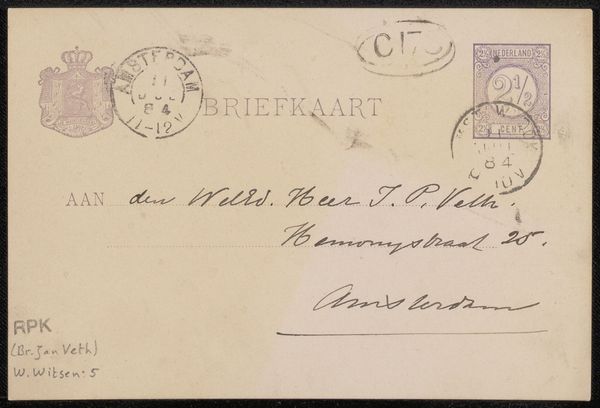
drawing, paper, ink, pen
#
drawing
#
comic strip sketch
#
pen sketch
#
hand drawn type
#
paper
#
personal sketchbook
#
ink
#
ink drawing experimentation
#
pen-ink sketch
#
pen work
#
sketchbook drawing
#
pen
#
storyboard and sketchbook work
#
sketchbook art
Copyright: Rijks Museum: Open Domain
Curator: Right, so, before us, we have “Briefkaart aan Philip Zilcken,” speculated to be from 1893 by Menso Kamerlingh Onnes. It's ink and pen on paper. Immediately, it gives off a certain... ephemeral feeling, doesn't it? A fleeting message, barely there. Editor: Fleeting indeed! More than that. Look at the address; think of the hands that touched it. This postcard becomes a record of social connections. The "WelEdelgeb Heer" implies Zilcken had status, addressed with respect and that final "rr" in the phrase for "Kunstschilder", a painting or writing error made underling and adding intrigue, what are you seeing, here? Curator: A kind of ghost, trapped in stationery. But look closer! The artist, Onnes, he's almost doodling around the edges. Playful! There are postal stamps with seals like crests. The word "Briefkaart" nearly vanishes. It has a light-hearted quality but also something much more intense because everything will fade away. We're like fossils! Editor: I agree, but those apparent doodles and ghostly words – the stamps and the nearly invisible pre-printed text “Briefkaart” – these details aren't incidental; they underline how communication itself is embedded in larger structures of power and how that power functions via visual and textual cues of belonging. Also, do the added touches enhance or mask any underlying meaning? Curator: Oh, I don't think he's deliberately masking anything, that wasn't his point! If there even was one! It’s intimate, this little scrap of communication between artists in Leiden or the Hague. Like spying on a conversation across time... Editor: It’s a deliberate act of visual encoding and class relationships with clues for a selected group. This scrap also speaks volumes about labor, literacy, and systems of delivery in that era. Curator: Systems change, that is true! Editor: Indeed! Let’s leave the visitor with that. What do *you* see in this card that once bridged an artist with another artist? Think what messages of yours you’d hope would stand the test of time, to say, perhaps, far more than you’d first imagined. Curator: Yes. Thank you. Well said.
Comments
No comments
Be the first to comment and join the conversation on the ultimate creative platform.
